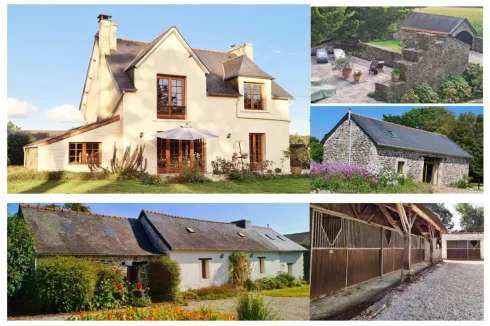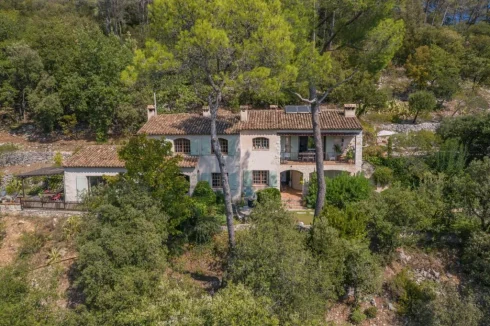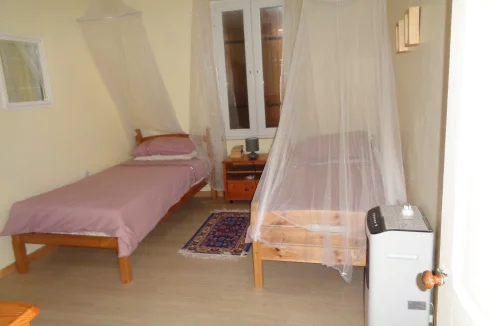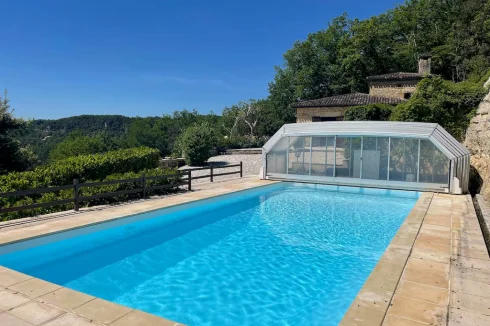Uncertain Outlook Causes Rise in Equity Release in France
Monday 16 June 2008
With French retirement pensions under pressure, notaires are reporting an increase in the demand for equity release.
Many people in the UK will be familiar with equity release schemes that enable elderly homeowners to unlock some of the value in their home in return for the payment of a lump sum or regular annuity.
A similar process operates in France, either through a lifetime loan against the property, or through the actual sale of the property in a process called ‘viager’.
Lifetime loans are a fairly recent innovation in France, with currently only one lender in the market (Crédit Foncier), whose terms are tough and expensive.
Accordingly, viager sales continue to be the only cost-effective means through which most elderly persons can release equity in their property.
Under a viager sale, the seller retains a right to continue to live in their home until death, or for a specified number of years.
The process begins by decision of an elderly person or couple that they wish to release some of the capital tied up in their home. There are a number of specialist estate agencies that are able to assist, but the seller can just as well put the property for sale on a private basis in newspapers and property magazines. However, in all cases the legal formalities of the sale have to proceed via a notaire, who are also often in the best position to advise on the terms of the transaction.
Most buyers of viager properties are French expats living abroad, or foreign buyers from Europe, investing in a property in the South of France, which they might expect to be available for them in their retirement.
Properties in an occupied ‘viager’ sale are sold on a discounted basis, in which the seller receives a capital sum called a ‘bouquet’ together with an annuity payable until death. The higher the capital sum the lower the annuity and vice versa.
The amounts paid are determined freely between the parties, but will be relative to the value of the property, the age of the seller, their circumstances and life expectancy.
Normally the capital payment is about 33% of the vacant possession value and the annuity anything from 500 to 2500 euros per month. However, the amounts can vary and the courts can nullify the sale if they consider the price paid by the buyer to be unacceptably low.
There are provisions for annual uplifting of the annuity based on indices of consumption.
Repairing and maintenance obligations for either side are those that would otherwise operate under a normal tenant-landlord relationship; with the occupant having responsibility for minor repairs and maintenance and the buyer responsibility for major works.
Whilst there are no particular tax advantages for the buyer, in the case of the seller there is tax relief on the annuity relative to their age. In the case of someone aged 70 years, only 30% of the annuity is taxable. No capital gains tax is payable on the ‘bouquet’ provided the property is their principal home.
A sale under ‘viager’ can also be used as a means of reducing inheritance tax liabilities for members of one’s family, but professional advice should be taken as there are traps for the unwary.
A ‘viager’ sale is not without risks to both sides.
Clearly, for the buyer the acquisition costs cannot be known at the outset. There may also be a problem recovering possession of the property on death if there is a family member living in the house, even though they will have no right of continued occupation.
For the seller there is the risk that the buyer might default on payments of the annuity. Accordingly, it is important to obtain details of the financial circumstances of the buyer and, if necessary, insist the buyer takes out insurance against an inability to pay the annuity.
In the event of default the seller does have various legal remedies available, including the right to recover ownership of the property and to resale it on the open market.
Nevertheless, despite the risks, viager does seem to be the elixir of life, for insurance company mortality tables show that people selling under a viager tend to live longer than their peers!
Indeed, in some cases they outlast their buyers, most famously evoked in the case of Jeanne Calment a lady living in the South of France, who died at the age of 122, a year after having attended funeral of the notaire who purchased her house thirty years previously!
You can read more about French mortgages in our comprehensive guide to French Mortgages.
Thank you for showing an interest in our News section.
Our News section is no longer being published although our catalogue of articles remains in place.
If you found our News useful, please have a look at France Insider, our subscription based News service with in-depth analysis, or our authoritative Guides to France.
If you require advice and assistance with the purchase of French property and moving to France, then take a look at the France Insider Property Clinic.





